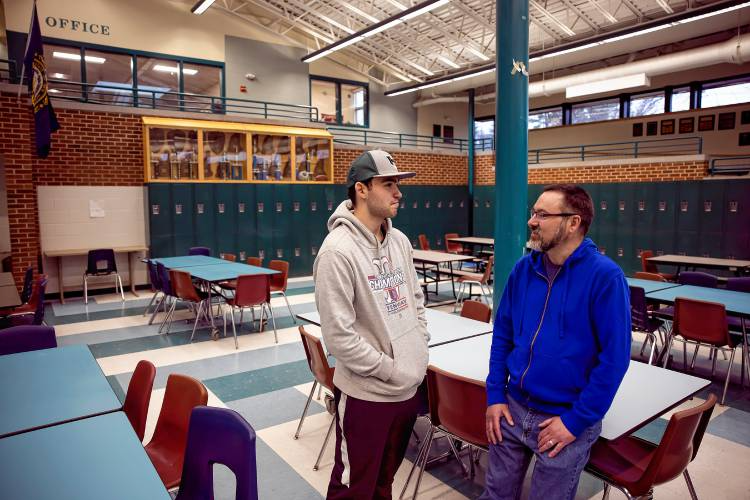By ALLISON BELLUCCI
Managing Editor
While most people just see election signs lining the roads of New Hampshire, Therese Willkomm sees the opportunity to reuse, recycle and help others.
When Willkomm, an associate professor of occupational therapy who also holds a position at the Institute on Disability, noticed these signs were made from corrugated plastic, she realized she and her students could create assistive technology to aid people with disabilities.
“Last election I was driving around and I saw all these signs that were being made with corrugated plastic,” Willkomm said, “and I thought ‘wow I wonder what they do with all of these election signs after the election,’ particularly people who don’t win the election, you know? What happens to all of those signs?”
Corrugated plastic is a material Willkomm has found to be vital in creating assistive technology. Resilient, easy to clean and able to bend when scored and not break the way normal plastic does, the material can be easily folded in different ways to make up to 78 different assistive objects.
“It’s kind of like playing origami with corrugated plastic,” Willkomm said. “If you bend it in certain ways and dimensions, you can make all sorts of great assistive technology for people with disabilities.”
Collaborating within the College of Health and Human Services, the occupational therapy class of 32 seniors and grad students are in charge of creating the assistive technology, while the Institute on Disability distributes the objects to the people in need.
From iPad holders, phone holders and even a device to aid independent eating, corrugated plastic isn’t the only material Willkomm and her students have reused.
“We are always repurposing materials, for example, a Swiffer duster we can turn into a reacher or a grabber to pick things up. Or flagpole brackets turn into really great holding divides. Cherry pitters we can use to get pills out of packs for people with arthritis. Industrial twist ties are foam covered and we can make 36 things out of those,” Willkomm said. “So we are constantly recycling and repurposing. Sustainability, low cost, everybody wins.”
Willkomm has also recently published her second book through the University of New Hampshire’s Institute on Disability bookstore and has been receiving calls from all over the United States for plans in making assistive technology. Funded by the Give Me Family Foundation, one hundred percent of the proceeds go into a restricted account to purchase assistive technology for people with disabilities.
For senior occupational therapy major Alex Stone, being a part of Willkomm’s classes has taught him how to see everyday objects as an opportunity to create something and help others.
“I could definitely see myself using these things I’ve learned from Therese. UNH is very sustainable. We recycle and reuse things. I just think it is really cool how Therese can take PBC pipes and leftover plastic and make different creations out of such simple items,” Stone said. “Do I think I will be able to carry that out of UNH? Absolutely.”
If you would like to donate old election signs email Therese Willkomm at [email protected].























